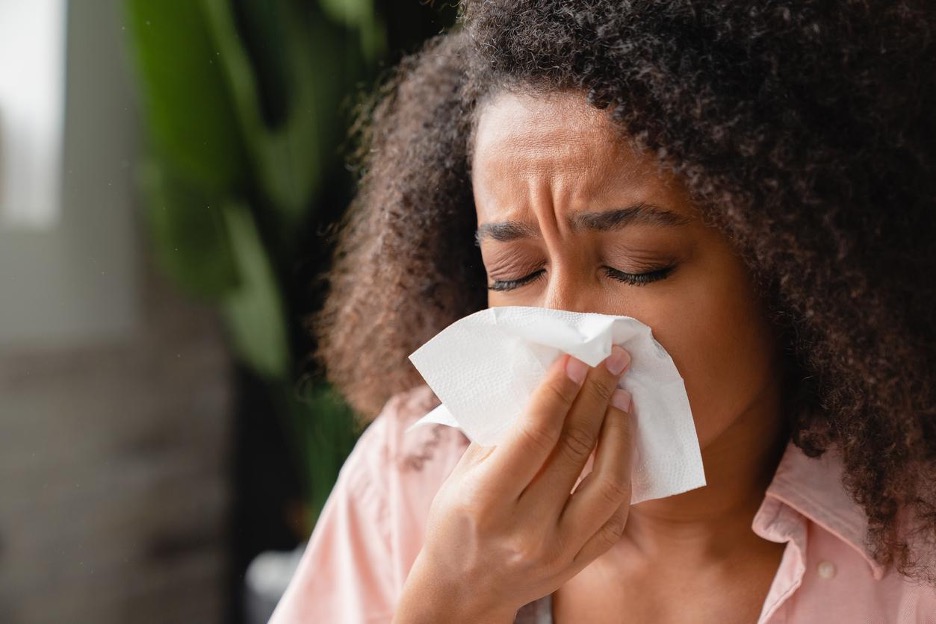HVAC, which stands for Heating, Ventilation, and Air Conditioning, is a technology that aims to improve indoor air quality and thermal comfort. HVAC systems are designed to regulate temperature, humidity, and air quality in buildings, including homes, offices, hospitals, and other commercial and industrial settings. These systems use various components, such as filters, fans, ducts, and sensors, to maintain optimal indoor conditions and promote healthy living and working environments.
As the seasons change, people with allergies face challenges. Allergy season, typically occurring in the spring and fall, can cause a wide range of symptoms, including sneezing, coughing, itching, and watery eyes. HVAC systems can play a critical role in helping people survive allergy season. By using high-efficiency filters, air purifiers, and regular maintenance, HVAC systems can provide relief for allergy sufferers and improve overall indoor air quality.
There are different ways in which HVAC systems can help homeowners manage allergy seasons.
1. Filters Out Allergens
One of the most effective ways that HVAC systems can help you survive allergy season is by filtering out airborne allergens like pollen, dust, and pet dander. HVAC systems use filters to capture these allergens, preventing them from circulating throughout your home or workplace. The type of filter used in an HVAC system can vary, from standard fiberglass filters to high-efficiency filters like HEPA (High-Efficiency Particulate Air) filters. HEPA filters are especially effective at capturing small particles, including allergens, and can remove up to 99.97% of particles that are 0.3 microns or larger. By using high-quality filters and changing them regularly, HVAC systems can significantly reduce allergen exposure, providing relief for allergy sufferers and improving overall indoor air quality.
HVAC plays a crucial role in improving indoor air quality and helping people survive allergy season. improving indoor air quality, HVAC systems can provide a safe and comfortable environment for people with allergies, enabling them to breathe easier and avoid allergy-related symptoms.
2. Maintains Optimal Humidity Levels
Another important way that HVAC systems help you survive allergy season is by maintaining optimal humidity levels. High humidity levels can promote the growth of mold and mildew, which are common allergens that can trigger respiratory symptoms. On the other hand, low humidity levels can dry out the skin, nasal passages, and eyes, which can make allergy symptoms worse. HVAC systems can remove some humidity by collecting and draining the condensation that forms from water vapor in the air. However, there are HVAC models on the market that have variable speed technology that allow homeowners to modify humidity levels within their home. By maintaining optimal humidity levels, HVAC systems can prevent the growth of mold and mildew, reduce airborne allergens, and promote a healthy and comfortable indoor environment for allergy sufferers.
3. Provides Fresh Air
Providing fresh air is another way that HVAC systems can help you survive allergy season. While indoor air can be filled with allergens and other pollutants, outdoor air is generally fresher and less contaminated. HVAC systems can bring in fresh outdoor air by using ventilation systems and air handlers, which can dilute indoor air pollutants and allergens. This can help reduce the concentration of indoor allergens and promote healthy indoor air quality. It is essential to note, however, that outdoor air can contain allergens like pollen, so it’s crucial to ensure that the HVAC system is appropriately filtered and maintained to prevent allergen exposure. Overall, providing fresh air through HVAC systems can effectively improve indoor air quality and promote allergy relief.
4. Reduces Indoor Odors
Another way that HVAC systems can help you survive allergy season is by reducing indoor odors. Certain odors from cooking, pets, and other sources can trigger allergy symptoms in some individuals, such as coughing, sneezing, and watery eyes. HVAC systems can reduce indoor odors by using air purifiers and filters that remove odor-causing particles and contaminants from the air. Additionally, regular maintenance of HVAC systems can ensure that they are functioning correctly and not contributing to indoor odors. By reducing indoor odors, HVAC systems can provide a healthier and more comfortable indoor environment for allergy sufferers.
Contact Us for Florida HVAC Service
HVAC systems are a valuable tool for surviving allergy season. By using high-quality filters, air purifiers, and ventilation systems, HVAC systems can provide relief for allergy sufferers and create a more comfortable and healthier indoor environment! It’s essential to note that regular maintenance and proper installation of HVAC systems are crucial to ensure optimal performance and prevent allergen exposure. Overall, HVAC systems can be a reliable solution for those looking to manage allergy symptoms and improve their quality of life during allergy season. Contact our team at Progressive Air Systems today to see how we can upgrade your HVAC to help you survive allergy season this year!

